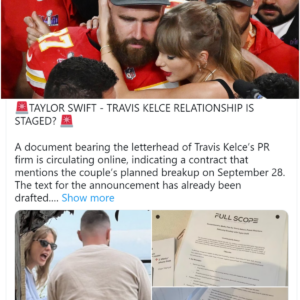Breakups are an inevitable part of the human experience. Whether it’s the end of a long-term relationship or a fleeting romance, the emotional aftermath can leave scars that linger for years

In times of heartache and despair, music often serves as a refuge, providing solace and understanding when words fail to express the depth of our pain. Few artists understand this better than Bruno Mars, whose poignant breakup anthems have resonated deeply with audiences worldwide. Through his soulful melodies and heartfelt lyrics, Mars has managed to capture the essence of heartbreak, offering listeners a glimmer of hope amidst the darkness.
In this exploration, we delve into the secrets behind Bruno Mars’s powerful breakup anthems, dissecting the universal themes, cathartic release, and empowering narratives that have made his songs a staple for the broken-hearted.
Universality of Heartbreak
One of the key reasons behind the enduring popularity of Bruno Mars’s breakup anthems is their universal appeal. Heartbreak knows no boundaries – it transcends age, gender, and culture. Whether you’re a teenager nursing your first broken heart or an older adult grappling with the end of a marriage, the emotions associated with a breakup are inherently relatable. Mars’s ability to articulate these feelings in a way that feels authentic and raw is what sets his music apart.
Take, for example, his chart-topping hit “Just the Way You Are.” On the surface, it may seem like a love song celebrating the beauty of a partner, but beneath the surface lies a poignant message about acceptance and self-worth. Lines like “When I see your face, there’s not a thing that I would change, ’cause you’re amazing just the way you are” resonate with anyone who has ever felt insecure or inadequate in a relationship. By affirming the inherent value of his subject, Mars speaks directly to the core of human insecurities, reassuring listeners that they are worthy of love and acceptance just as they are.
Similarly, “When I Was Your Man” offers a glimpse into the regrets and what-ifs that often accompany the end of a relationship. Mars bares his soul as he reflects on the things he could have done differently to save his love. The raw honesty of lines like “Too young, too dumb to realize that I should’ve bought you flowers and held your hand” strikes a chord with anyone who has experienced the sting of hindsight. In expressing vulnerability and remorse, Mars invites listeners to confront their own past mistakes and find solace in the shared experience of regret.
Catharsis Through Music
Music has a unique ability to evoke and amplify emotions, serving as a form of catharsis for both artists and listeners alike. Nowhere is this more evident than in the realm of breakup songs, where the raw intensity of heartache is laid bare for all to see. Bruno Mars understands this power of music to heal and uplift, infusing his breakup anthems with infectious melodies and irresistible hooks that invite listeners to dance through their pain.
Take, for instance, “It Will Rain,” Mars’s haunting ballad featured on the soundtrack of the film “The Twilight Saga: Breaking Dawn – Part 1.” Against a backdrop of melancholic piano chords and soaring strings, Mars delivers a gut-wrenching performance as he grapples with the agony of lost love. The chorus, with its refrain of “If you ever leave me, baby, leave some morphine at my door,” captures the desperation and longing that often accompany a breakup. Yet, despite the bleakness of the lyrics, there is a sense of catharsis in Mars’s delivery, as if by giving voice to his pain, he is able to find some measure of peace.
Empowerment and Resilience
While breakup songs are often associated with sadness and heartache, Bruno Mars injects a sense of resilience and empowerment into his music that sets him apart from his peers. Rather than wallowing in despair, Mars’s songs are imbued with a sense of hope and determination, encouraging listeners to pick up the pieces and move forward with their lives.
In “Grenade,” Mars confronts the betrayal of a former lover with fierce determination, declaring his willingness to sacrifice everything for the sake of love. Lines like “I’d catch a grenade for ya, throw my hand on a blade for ya” may seem extreme, but they speak to the depths of emotion and devotion that characterize many relationships. By embodying the archetype of the lovelorn martyr, Mars transforms his pain into a symbol of strength, inspiring listeners to stand up for what they believe in, even in the face of adversity.
Similarly, “Locked Out of Heaven” channels the frustration and anger of a breakup into a defiant anthem of self-empowerment. Mars refuses to be held back by the chains of heartache, declaring his intention to break free and embrace life on his own terms. With its infectious groove and infectious chorus, the song serves as a rallying cry for anyone who has ever felt trapped by their circumstances, urging them to reclaim their power and chart their own path to happiness.
Conclusion
In the realm of breakup anthems, few artists have managed to capture the complexity of human emotion quite like Bruno Mars. Through his soulful melodies and heartfelt lyrics, Mars has managed to articulate the universal experiences of heartbreak, offering listeners a sense of validation and understanding in their darkest moments. Whether it’s the raw vulnerability of “Just the Way You Are,” the cathartic release of “It Will Rain,” or the empowering resilience of “Locked Out of Heaven,” Mars’s music continues to resonate with audiences worldwide, serving as a beacon of hope and healing for the broken-hearted. As long as love and loss remain a part of the human experience, Bruno Mars’s breakup anthems will continue to hold a special place in the hearts of listeners everywhere.
News
Bruno Mars Abruptly Cancels Sold Out Concert In Israel After ‘Militant’ Group Launches Attack Killing More Than 200 Civilians
Bruno Mars Bruno Mars Abruptly Cancels Sold Out Concert In Israel After ‘Militant’ Group Launches Attack Killing More Than 200 Civilians War has broken out in Israel….
“Phenomenon” Bruno Mars caused a fever in the music industry after 4 years of absence
The male singer of famous hits in the international music industry, such as “Just the Way You Are”, “Grenade”, “The Lazy Song”, “Uptown Funk!”… has just reappeared….
Fans Question Bruno Mars about Where He Had Been after He Trolls Artists over Grammy Snubs
A few days after “Just the Way You Are” crooner dropped a witty Grammy-related post on social media, fans have begun asking him when he would release…
Nick Cannon thinks Bruno Mars has more hits than Beyoncé and Taylor Swift
Beyonce and Bruno Mars performed together at the Super Bowl 50 halftime show. Nick Cannon thinks Bruno Mars has more hit songs than Beyoncé and Taylor Swift….
FENDER HONORS GRAMMY-WINNING ARTIST, MULTI-INSTRUMENTALIST, SONGWRITER, AND PRODUCER BRUNO MARS WITH ARTIST SIGNATURE STRATOCASTER GUITAR
The Bruno Mars Stratocaster® Features the All New Mars Mocha Heirloom™ Finish, 1969 Vintage Stratocaster® Neck Shape and a Custom-Set of Bruno Mars Pickups that Personifies Mars’ Unique Style…
Bruno Mars Cancels Israel Show Amid Hamas Attack
Bruno Mars performs on December 02, 2016 in Los Angeles. B LACROIX/WIREIMAGE Bruno Mars’s sold-out concert in Tel Aviv on Saturday has been canceled, its promoters announced…
End of content
No more pages to load











